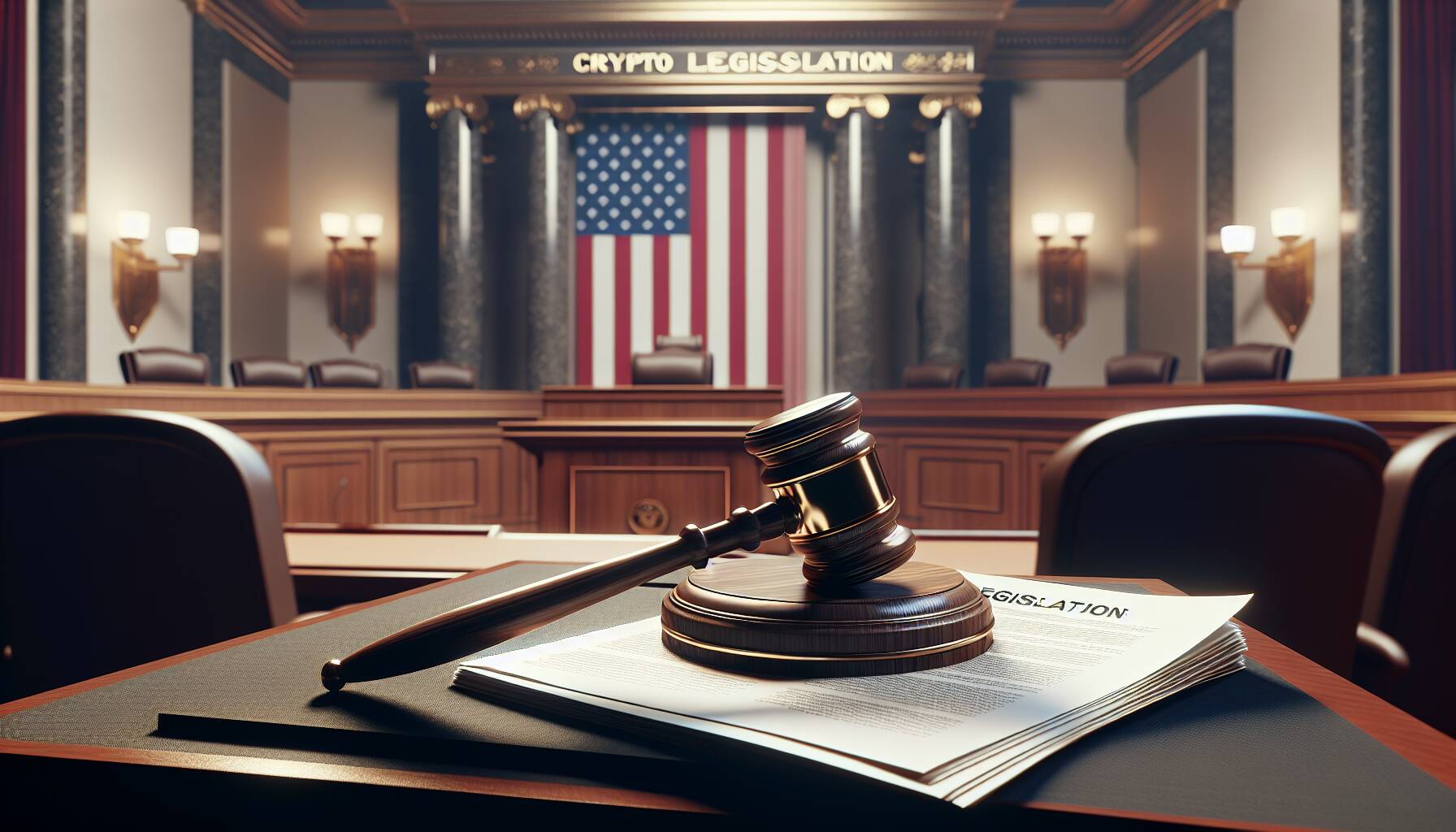As Crypto Week unfolds, the momentum in the U.S. House towards passing crucial digital assets legislation encountered a surprising setback on Tuesday. A procedural vote failed to secure unanimous support, due to objections from members of the House Freedom Caucus regarding the Senate’s influence over the bills. This abrupt disruption introduced uncertainty at a time when positive developments were anticipated, especially with two significant priorities for the crypto industry poised for a vote.
The procedural misfire sent ripples through the crypto markets, resulting in a slight dip in Bitcoin (BTC) and ether (ETH), both of which fell approximately 0.5% before regaining most of those losses. Meanwhile, Circle (CRCL), a notable player in the stablecoin market, saw a 5.3% decline, although it has appreciated significantly since its IPO last month, currently up about six-fold.
Despite the hiccup, bipartisan backing for the legislation remains strong, suggesting that the situation may be resolved swiftly. Another vote has been scheduled for Tuesday afternoon, with hopes to maintain the momentum for the key votes expected on Wednesday and Thursday. U.S. President Donald Trump has publicly urged Republicans to support the legislation, known as the GENIUS Act, emphasizing the need for the U.S. to lead in the global cryptocurrency arena.
“Procedural disruptions can be the norm in the legislative process,” noted industry observers, highlighting the ongoing dynamics as discussions continue around the current bills.
With political maneuvering at play, the path forward remains compelling for the crypto sector as stakeholders brace for potential outcomes impacting the legislative landscape.

Impact of U.S. House Proceedings on Crypto Markets
Key points related to the recent developments in the U.S. House’s legislative process regarding digital assets:
- Legislative Delay: The U.S. House’s progress on digital assets bills faced a halt due to a procedural vote objection by the House Freedom Caucus.
- Bipartisan Support: Despite the procedural setback, strong bipartisan support remains for the legislation, indicating potential resolution.
- Upcoming Votes: Another vote is scheduled for later, which may address the procedural issues without impacting the critical votes expected this week.
- Market Reaction: The crypto market reacted negatively, with Bitcoin and Ether experiencing immediate declines, demonstrating the sensitivity of crypto assets to legislative news.
- Presidential Advocacy: U.S. President Donald Trump urged Republicans to support the GENIUS Act, emphasizing its importance for the U.S.’s competitive edge in crypto development.
- Negative Sentiment: The procedural disruptions highlight the unpredictability of legislative processes, which can lead to market volatility.
The interplay between legislative actions and the crypto market underscores the importance of political developments on individual investments and overall market stability.
Crypto Legislation in Limbo: A Closer Look at Recent Developments
The ongoing legislative journey for digital asset bills in the U.S. House has encountered a significant speed bump thanks to a procedural vote that momentarily stalled progress. This situation showcases a stark contrast in the dynamics of crypto legislation compared to previous bills that sailed through with fewer hurdles, highlighting both competitive advantages and disadvantages in the current political landscape.
Competitive Advantages: Despite the procedural hiccup, bipartisan support for the bills remains robust, indicating a collective acknowledgment of the importance of establishing a clear regulatory framework for cryptocurrencies. Moreover, President Trump’s endorsement adds weight to the effort, framing the passage of the GENIUS Act as essential for maintaining U.S. leadership in the global cryptocurrency space. This strong backing could galvanize additional support among hesitant lawmakers and ensure the legislation’s eventual passage.
Disadvantages: However, the vocal dissent from the House Freedom Caucus underscores a growing faction within Congress that is wary of the Senate’s influence over the legislative process. Such intra-party conflict not only creates uncertainty for the crypto markets but can also embolden opposition as dissenting Republicans may push for more extensive discussions and amendments, further delaying critical votes.
This legislative limbo could benefit various stakeholders in the crypto ecosystem, particularly those advocating for a more defined regulatory framework that fosters innovation. Conversely, market participants could face volatility as seen with Bitcoin and ether’s immediate reactions to the news, illustrating how procedural disruptions can lead to knee-jerk market adjustments. Investors and companies involved with stablecoin issuers like Circle may need to navigate increased market unpredictability as the situation unfolds.
Ultimately, the outcome of the upcoming votes holds significant implications for both supporters and critics of cryptocurrency legislation. As lawmakers iron out these contentious issues, the potential for delayed decisions could pose challenges for crypto enthusiasts, while simultaneously opening new avenues for dialogue and collaboration among industry players eager to see a stable regulatory environment established.

















